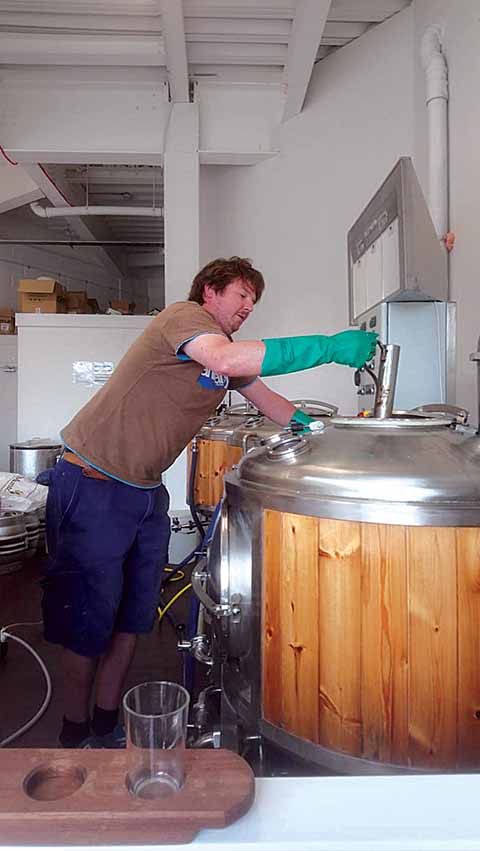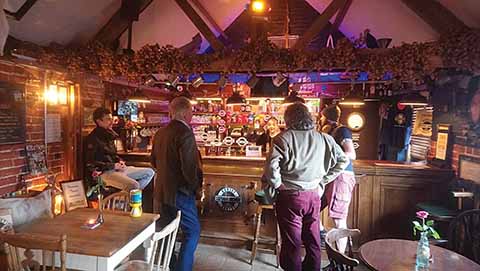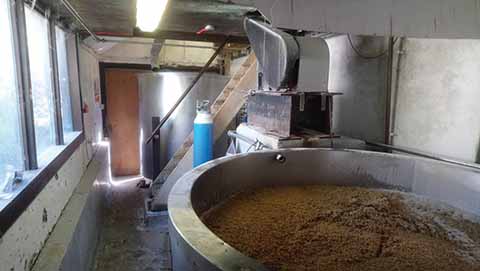Taste of Dorset – Be of good beer
Rachel Mead makes a whistle-stop tour of Dorset’s breweries and finds the art of the ale alive and well
Published in January ’20
‘BREWING IS ABOUT characters,’ says Darren Batten, Head Brewer from Palmers Brewery, ‘and Dorset brewers will always share a pint to talk about the industry. It maintains the healthy competition.’
With over twenty established breweries providing the county with award-winning beers, Dorset’s ale enthusiasts can be guaranteed to satisfy their appetite with a different regional brew each time they step into one of their locals. ‘It’s the Dorset pubs that really drive our passion. We are brewing for a decent meal and a good pint of beer. Real ale and good food go together,’ according to Darren.
With Palmers recently celebrating 225 years of creating beers such as Tally Ho! from the same building in Bridport, it is clear that Dorset has a history steeped in brewing. Just 30 miles eastwards you can find Hall & Woodhouse, who brewed their first pints a few years earlier still, in 1777.
Another key player in the industry can be found in Belinda Kelly, Head Brewer at the Southbourne location of Brewhouse and Kitchen, who started brewing at home with kits. After slowly upgrading to all-grain brewing she then made the move into commercial brewing and now produces over 183,000 imperial pints a year.
But it’s not just these established characters who have put a stamp on the county’s beer consumption. ‘When Gordon Brown was chancellor and made his shift to the tax regime, it suddenly made it more achievable for a small brewer to respond quickly to the demand for a locally brewed beer,’ explains John Chambers, Chairman of East Dorset CAMRA (Campaign for Real Ale), who has seen a leap from just four brewers to an established group of sixteen in his part of the county alone. ‘We hear the poor news of pubs shutting nationally but what isn’t included in these statistics is that micro pubs are growing. The local brewers who have marketing nous are doing really well; they win CAMRA and SIBA (Society of Independent Brewers) awards, gaining recognition from their consumers and peers alike.’
There is evidence from across the county of the creativity that is required behind the scenes in brewing. In Bournemouth, Tom Cooper and Nick Horne have made the transition from the hospitality industry to creating their own craft beers for Barefaced Brewing. They are about to launch a session pale ale to join the other ten beers they’ve already bottled. ‘The thing we love about brewing is that it’s a hundred jobs in one day,’ they enthuse, ‘and every day you can learn and improve in a really challenging industry.’
Similarly, in a move to keep the brewing industry inventive while maintaining a focus on Dorset, the Imaginary Friends Brewery in Sherborne is collaborating with local businesses to combine their core Brewed Boy beers with coffee and cheese providers.
Whether you are an established player or new to the game, what seems to be a current theme is that all brewers have their challenges during the production stages of creating the next perfect pint.
Crumpled steel tanks, combusting casks or even simple errors such as the incorrect valve being switched on have all led to countless litres of beer glugging down Dorset’s drains. Lyall Dew from Sixpenny Brewery, which has won numerous beer awards, trialled a test run on a new Honey Porter last year: ‘We primed the cask with too much honey and for too long. It exploded as I rolled it out of the cellar. Still, it was the most delicious shower I’ve ever had!’
These brewing mishaps can also have the reverse effect. A hop across the Dorset Downs to the Cerne Abbas Brewery reveals a success story from Head Brewer Vic Irvine. ‘My business partner, Jodie and I were at cross-purposes. I’d starting mashing up to make a beer, went off to drink a few glasses and then Jodie came in and thought we were making another beer so changed the brew. The result? Pints of Cock Up, one of our best-sellers!’
With the barley being grown in the valley, Vic and Jodie keep food miles low and maintain the organic cycle by sending the spent malt back to the farm as pig feed.
The tap-room doors are permanently open and locals return time and time again with their own containers to cut down on single-use plastics and also to take part in a seasonal community hop brew. Vic Irvine again: ‘Because of where we are, we’ve got regular footfall of people coming to our quintessential village and brewery. People call in on us and we thrive, knowing our Dorset business is of benefit to other businesses in our community. It’s the fabric of life, we are all interwoven. Beer shall come first and the rest shall follow!’




